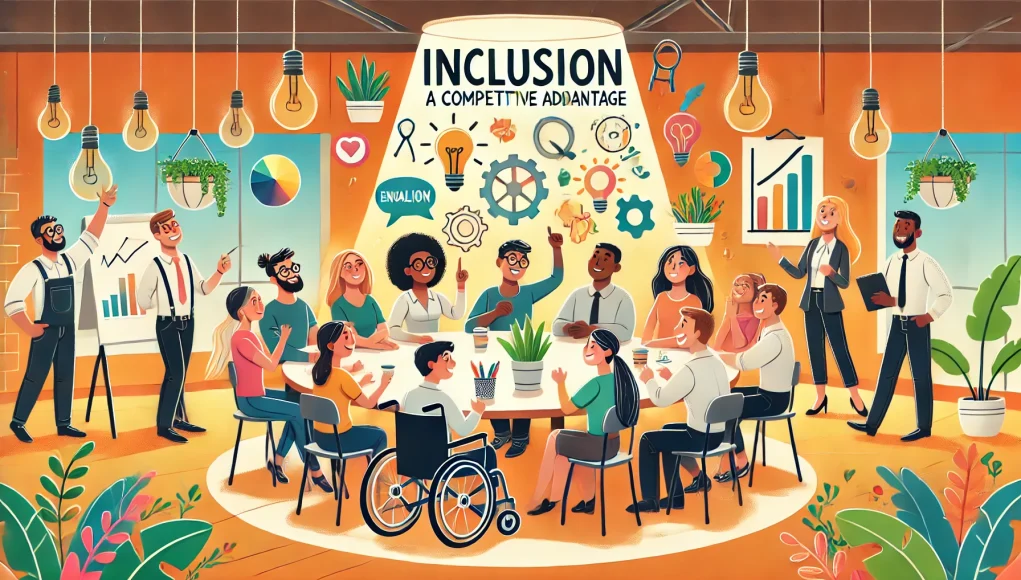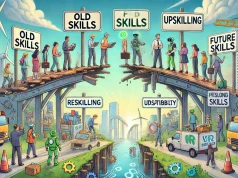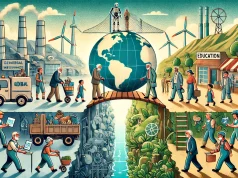Inclusion is often framed as a moral imperative—a means to build fairer societies and more compassionate workplaces. But the truth is, inclusion is not just about doing what’s right; it’s about doing what works.
The organizations that will thrive in the future of work are those that embrace diversity, equity, and inclusion (DEI) as strategic priorities. According to studies, companies with inclusive cultures are 1.7 times more likely to be innovation leaders in their industries and have 83% stronger talent pipelines compared to those with less focus on DEI.
Yet, inclusion is not simply a box to check. It’s a competitive advantage that requires intentionality, investment, and systemic change. As demographic, technological, and cultural shifts reshape the workplace, inclusion is emerging as the key to attracting talent, fostering innovation, and building resilience in an unpredictable world.
Why Inclusion Matters More Than Ever
The need for inclusion has always existed, but the forces shaping today’s workforce make it more urgent than ever:
1. Demographic Shifts
With aging populations in high-income countries and growing workforces in low-income regions, the global talent pool is becoming more diverse. Organizations that fail to create inclusive cultures risk alienating the very people they need to thrive.
2. Generational Expectations
Younger generations entering the workforce prioritize diversity and inclusion more than any before them. Millennials and Gen Z workers are more likely to choose employers based on their DEI commitments, pushing companies to adapt or risk losing top talent.
3. The Rise of Remote Work
The shift to hybrid and remote work has broadened the talent pool, enabling organizations to hire across geographies, cultures, and abilities. But this diversity only works as an advantage when companies can integrate and leverage it effectively.
Inclusion as an Innovation Driver
At its core, inclusion drives innovation by bringing diverse perspectives to the table. Teams that include people from different backgrounds, experiences, and worldviews are better equipped to challenge assumptions, solve complex problems, and create products that resonate with a broader audience.
Consider the tech industry: Inclusive teams are more likely to anticipate blind spots in product design, ensuring technologies work for all users—not just a privileged few. From AI systems that avoid bias to health solutions tailored to underserved communities, inclusion directly impacts the relevance and usability of innovation.
But the benefits extend beyond products. Inclusive cultures foster psychological safety, encouraging team members to share ideas without fear of judgment. This openness fuels creativity and experimentation—essential ingredients for staying competitive in a fast-changing world.
The Business Case for Inclusion
1. Talent Attraction and Retention
Inclusive organizations are magnets for talent. Workers want to feel valued, respected, and empowered to contribute. A Glassdoor survey found that 76% of job seekers consider DEI a critical factor when evaluating job offers.
2. Financial Performance
Companies that prioritize inclusion aren’t just socially responsible—they’re more profitable. Research by McKinsey shows that firms with diverse leadership teams are 36% more likely to outperform their peers financially.
3. Resilience and Agility
Inclusion strengthens organizational resilience by ensuring a diversity of thought and experience. When faced with disruption, inclusive teams are better equipped to adapt, pivot, and find solutions that reflect a range of perspectives.
Barriers to Inclusion
Despite the clear benefits, many organizations struggle to make inclusion a reality. Common barriers include:
- Implicit Bias: Unconscious preferences can skew hiring, promotions, and decision-making, perpetuating homogeneity.
- Tokenism: Superficial efforts to increase diversity without creating meaningful opportunities for marginalized groups can backfire, eroding trust.
- Structural Inequities: Systemic issues, such as unequal access to education and resources, continue to limit opportunities for underrepresented groups.
Real inclusion requires addressing these barriers head-on. It’s not enough to hire for diversity; organizations must also create environments where diverse voices are heard, valued, and empowered to lead.
The Ethical and Competitive Imperative
Inclusion isn’t just a business strategy—it’s a moral responsibility. The global workforce is filled with untapped potential, and every barrier to inclusion represents a missed opportunity to unlock it.
Consider this: Inaccessible workplaces exclude people with disabilities from contributing their talents. Biases in hiring perpetuate inequality, denying opportunities to qualified candidates. Cultural insensitivity alienates workers from diverse backgrounds, stifling collaboration and innovation.
Each of these failures is not just an ethical lapse but a competitive disadvantage. By building inclusive workplaces, we don’t just do right by people—we make smarter, more strategic decisions that position organizations for long-term success.
How to Build Inclusion Into the Fabric of Work
1. Start With Leadership
Inclusion starts at the top. Leaders must model inclusive behaviors, champion DEI initiatives, and hold themselves accountable for progress. Diverse leadership teams send a powerful message about an organization’s values and priorities.
2. Embed DEI Into Processes
From hiring to performance evaluations, inclusion must be baked into every aspect of workplace operations. For example:
- Using AI tools to eliminate bias in recruitment.
- Implementing mentorship programs for underrepresented employees.
- Regularly auditing pay equity and promotion practices.
3. Measure Impact, Not Intentions
Good intentions aren’t enough. Organizations must set measurable DEI goals, track progress, and adjust strategies based on data. Transparency is key—sharing outcomes builds trust and accountability.
4. Foster an Inclusive Culture
Building inclusion isn’t just about policies—it’s about creating a sense of belonging. This means cultivating an environment where employees feel safe to speak up, collaborate, and bring their authentic selves to work.
A Future Defined by Inclusion
The future of work will belong to those who see inclusion not as a challenge but as an opportunity—a way to unleash potential, drive innovation, and build stronger, more resilient organizations.
Inclusion isn’t a trend. It’s a necessity. And the organizations that embrace it will not only thrive in the future—they’ll define it.
As leaders, we have a choice: to view inclusion as an obligation or as a competitive edge. Let’s choose the latter and build a future where everyone has the opportunity to succeed—and where we succeed because of it.



























